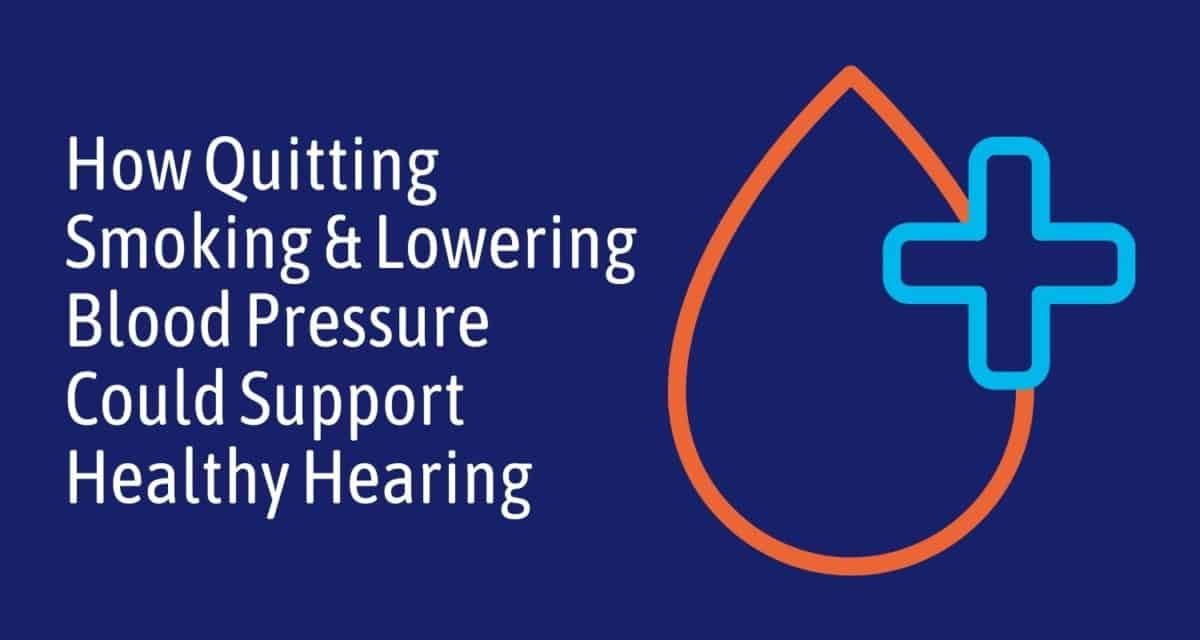- How to Recognize the First Signs of Hearing Loss - June 5, 2025
- Understanding the Connection Between Tinnitus and Weather - May 17, 2025
- The Most Unexpected Reasons Hearing Aids Can Malfunction - May 9, 2025
When you are in good health, health is a subjective word. However, as health issues start to catch up with you, hindering what you can do and how you feel daily, we begin to realize that a healthy lifestyle may be more important to the quality of life than we previously suspected. This is for instance why many younger people don’t think twice about attending a loud concert without hearing protection or blasting music into their headphones for hours on end. Hearing loss can quickly affect all areas of your life from communication, to independence and mobility. Monitoring our hearing health now will allow us to stay more connected and active as we age.
For those of us who are smokers, we must be stubborn to still smoke despite all the health warnings. However, this could be in part due to its extremely addictive nature more than stubbornness. On top of all the other health concerns around smoking like cancer, heart disease, stroke, lung diseases, and hypertension (high blood pressure), now researchers are finding that smoking also increases your risk of hearing loss.
Studies Linking Smoking to Hearing Loss
A 2018 Japanese study examined 50,000 workers, ages 20 to 64, without hearing loss over eight years. At the end of the study, researchers found that more than 5,100 study participants had developed hearing loss. One factor which stood out was smoking and tobacco use in connection to hearing loss. They found that compared to nonsmokers- smokers were 60 percent more likely to develop high-frequency hearing loss, making it difficult to understand speech in noisy environments. They also found that current smokers were also 20 percent more likely to develop low-frequency hearing loss, which hinders detection of deep voices. Alarmingly, even if you aren’t a smoker but live or work with one, you are at risk of developing hearing loss. It also increases your risk of tinnitus (buzzing in the ears) and vertigo (dizziness).
How Smoking Affects Your Ears
The problem with how smoking is connected to hearing loss starts with hypertension, also known as high blood pressure. The addictive chemical in cigarettes is nicotine, which. raises your blood pressure and heart rate narrows your arteries, and increases your risk of blood clots. This stresses your heart making it more likely for interruptions in blood supply causing a heart attack or stroke. The inner ears hold tiny hair-like cells to transmit sound information from the ears to the brain. These cells of the inner ear also need a constant supply of healthy oxygenated blood to maintain their health and maintain hearing. When blood cells are constricted and blood pressure is too high, it can cause damage or even destruction to these cells, leaving an individual with permanent hearing loss. Not only does hearing loss deprive your ears of the oxygenated blood it needs to stay healthy but also puts the entire auditory system at a higher risk for colds and infections which can cause damage when chronic.
How High Blood Pressure Affects Your Ears
How does tobacco affect blood pressure? The nicotine in cigarettes causes your blood vessels to become narrowed and your heartbeat faster, which makes your blood pressure get higher. When hypertension is not treated the blood vessels throughout your entire body including your ears are likely to get damaged, increasing the risk of hearing loss significantly.
Supporting Healthy Hearing
The good news is that by quitting now you are already reducing your risk of continued hearing damage. Researchers find that the more you smoke, the higher the risk and degree of hearing loss. Even 20 minutes after your last cigarette, your blood pressure will decrease, circulation will start to improve, and your cells will begin to receive more oxygen. After a few hours, your oxygen levels will return to normal and after a couple of days, your sense of taste and smell will improve. Instead of smoking replace it with exercise! Regular exercise and a healthy diet can help to lower blood pressure, reduce stress, and protect your ears for years to come.
Treating Hearing Loss
There is no way to reverse an existing hearing loss, but it can be treated effectively using hearing aids. These amazing devices can help you hear the sounds you’ve missed and stay connected to loved ones and the world around you. Today could be the day to quit smoking and get in control of your hearing health. Schedule a hearing exam today.

